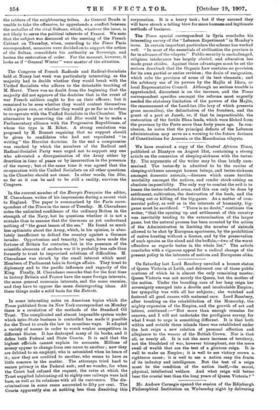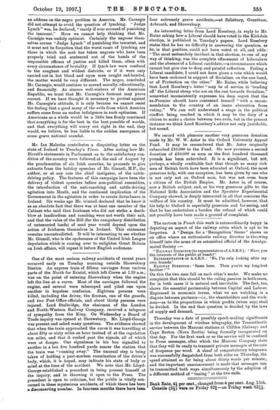an address on the negro problem in America. Mr. Carnegie
did not attempt to avoid the question of lynching. "Judge Lynch" was, he declared, "rarely if ever accused of punishing the innocent." Here we cannot help thinking that Mr. Carnegie was unduly optimist. Certainly the negroes them- selves accuse "Judge Lynch" of punishing the innocent, and it must not be forgotten that the worst cases of lynching are those in which the mob has taken negroes who have been properly tried and sentenced out of the hands of the responsible officers of justice and killed them, often with every circumstance of brutality. If lynch law were confined to the roughest and wildest districts, or if it were only carried out in hot blood and upon men caught red-handed, the matter would be very different. The negro, concluded Mr. Carnegie, would continue to ascend morally, educationally, and financially. As sincere well-wishers of the American Republic, we trust that Mr. Carnegie's forecast may prove correct. If we have thought it necessary to protest against Mr. Carnegie's attitude, it is only because we cannot resist the feeling that a good many of the evils from which America suffers come from an undue indulgence in such optimism. If Americans as a whole would be a little less firmly convinced that everything is for the best in the best possible of worlds, and that everything will worry out right in the end, they would, we believe, be less liable to the sudden emergence of some grave national scandal.











































 Previous page
Previous page